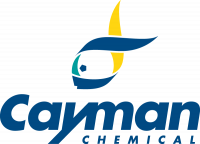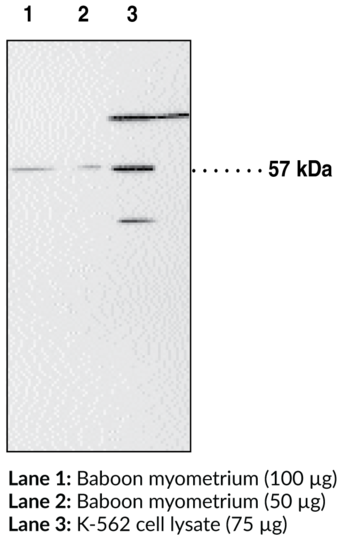Cookie preferences
This website uses cookies, which are necessary for the technical operation of the website and are always set. Other cookies, which increase the comfort when using this website, are used for direct advertising or to facilitate interaction with other websites and social networks, are only set with your consent.
Configuration
Technically required
These cookies are necessary for the basic functions of the shop.
"Allow all cookies" cookie
"Decline all cookies" cookie
CSRF token
Cookie preferences
Currency change
Customer-specific caching
FACT-Finder tracking
Individual prices
Selected shop
Session
Comfort functions
These cookies are used to make the shopping experience even more appealing, for example for the recognition of the visitor.
Note
Show the facebook fanpage in the right blod sidebar
Statistics & Tracking
Affiliate program
Conversion and usertracking via Google Tag Manager
Track device being used
| Item number | Size | Datasheet | Manual | SDS | Delivery time | Quantity | Price |
|---|---|---|---|---|---|---|---|
| Cay101710-1 | 1 each | - |
6 - 10 business days* |
422.00€
|
If you have any questions, please use our Contact Form.
You can also order by e-mail: info@biomol.com
Larger quantity required? Request bulk
You can also order by e-mail: info@biomol.com
Larger quantity required? Request bulk
Peroxisome proliferator-activated receptor alpha (PPARalpha) is a member of the nuclear receptor... more
Product information "Anti-PPARalpha"
Peroxisome proliferator-activated receptor alpha (PPARalpha) is a member of the nuclear receptor family of ligand-activated transcription factors that regulates a variety of metabolic functions and inflammation. It contains an N-terminal domain that is subject to phosphorylation, a DNA-binding domain, and a C-terminal ligand-binding domain (Cay-10009088). PPARalpha is highly expressed in tissues with high fatty acid oxidation rates, including the liver, heart, skeletal muscle, brown adipose tissue, and kidney, as well as in macrophages and T cells. It is activated by a variety of endogenous ligands such as fatty acids, eicosanoids, and endocannabinoids, as well as synthetic agents, including fenofibrate (Cay-10005368) and gemfibrozil (Cay-14835). Upon activation, PPARalpha heterodimerizes with the retinoid X receptor (RXR) and binds to PPAR response elements in PPARalpha target genes, recruiting RNA polymerase II and initiating gene transcription. PPARalpha transcriptionally regulates a variety of genes involved in several cellular processes, including lipid and hormone transport, peroxisomal and mitochondrial beta-oxidation, amino acid metabolism, and inflammation. Genome-wide deletion of Ppara protects mice from high-fat diet-induced hyperinsulinemia and insulin resistance. PPARA SNPs have been found in individuals with a variety of cardiovascular conditions, including hypertension, atherosclerosis, coronary artery disease, left ventricular hypertrophy, or myocardial infarction. Formulations containing PPARalpha agonists have been used in the treatment of hyperlipidemia. Cayman's PPARalpha Polyclonal Antibody can be used for immunohistochemistry (IHC) and Western blot (WB) applications. The antibody recognizes the N-terminal region of PPARalpha at approximately 52 kDa from human, baboon, mouse, and pig samples.Synonyms: NR1C, Peroxisome Proliferator-activated Receptor alpha. Immunogen: Synthetic peptide form the N-terminal region of human PPARalpha. Formulation: (Request formulation change), 500 µl of Peptide affinity-purified polyclonal antibody. Storage Buffer: PBS, pH 7.2, with 50% glycerol and 0.02% sodium azide. Host: Rabbit. Applications: IHC, WB. Cross Reactivity: (-) PPARgamma. UniProt Accession #: Q07869. Origin: Animal/Rabbit.
| Keywords: | Anti-PPARA, Anti-NR1C1, Anti-PPAR-alpha, Anti-PPAR-alpha, Anti-Nuclear receptor subfamily 1 group C member 1, Anti-Nuclear receptor subfamily 1 group C member 1, Anti-Peroxisome proliferator-activated receptor alpha, Anti-Peroxisome proliferator-activated |
| Supplier: | Cayman Chemical |
| Supplier-Nr: | 101710 |
Properties
| Application: | IHC, WB |
| Antibody Type: | Polyclonal |
| Conjugate: | No |
| Host: | Rabbit |
| Species reactivity: | human |
| Immunogen: | Synthetic peptide form the N-terminal region of human PPAR? |
| Format: | Solid |
Database Information
| KEGG ID : | K07294 | Matching products |
| UniProt ID : | Q07869 | Matching products |
| Gene ID | GeneID 5465 | Matching products |
Handling & Safety
| Storage: | -20°C |
| Shipping: | -20°C (International: -20°C) |
Caution
Our products are for laboratory research use only: Not for administration to humans!
Our products are for laboratory research use only: Not for administration to humans!
Information about the product reference will follow.
more
You will get a certificate here
Viewed







